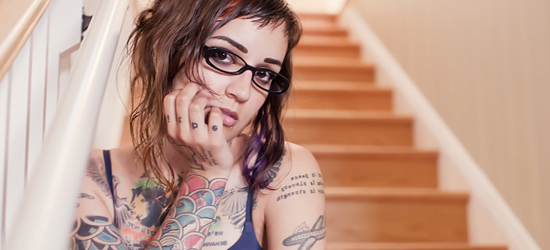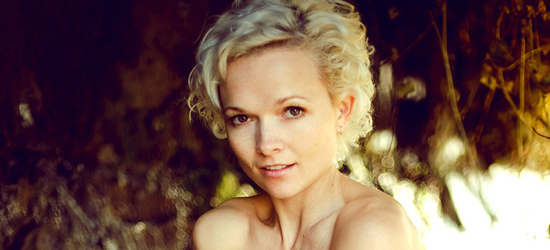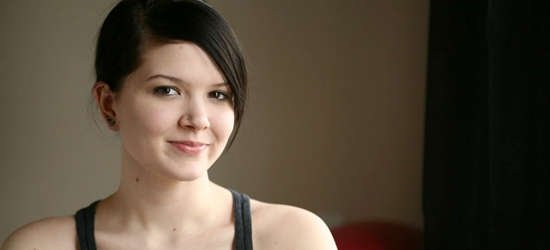
Got Problems? Sex, Love and Relationship Advice From SuicideGirls’ Team Agony0
Posted In All Things SG,Blog,Love,Relationships,Sex,Society
by SG’s Team Agony feat. Lyxzen Suicide
Let us answer life’s questions – because great advice is even better when it comes from SuicideGirls.

Q. I have been friends with this girl for about five years. Around three months ago we both decided to make a go of a relationship since we had both been hiding feelings for each other. The issue is that I’ve been living on the opposite side of the country for a year or so and things are getting rather hard. She never returns my calls, she will only text me, she has been talking to me less and less, and every time I try to set up a visit for me to see her or for her to come see me things never work out. Mostly she just never gets back to me with a yes or no about coming to see me or about me coming to see her. This is really hard for me because I am starting to feel like maybe I am the second guy in her life, and that is just unacceptable to me. I don’t want to lose her if there is nothing sketchy going on, but I also have to know the truth. How do I approach her about finding out what is really going on with us?
A: Holy déjà vu, Batman…Reading this letter was like a look back into my past, only with the male and female pronouns switched!
My then-beau and I were even planning his move to my city, when he began pulling away. I had the same gut feeling that you’ve no doubt been trying to get past, but in the end, he was banging another girl. (Funny side-note, she and I ended up being friends after they called it quits — turns out he didn’t treat his in-town lady lover any better!)
You know that it takes a lot to maintain a long-distance relationship (Ask anyone who’s been in one — they’re never easy!), and whatever her deal is, whether she’s creating distance because of some type of stress in her life, or because she’s just a nasty ho, this girl clearly isn’t into it.
I hate to get all Dr. Phil on you, but you’re better than this. You deserve better than this! Whatever’s going on in her world only she’s going to be able to deal with. Unfortunately, I think there’s a really high probability that your suspicions about her sketchy-ness are completely right, but either way, shit just ain’t cool and you shouldn’t have to put up with this kind of behavior. I mean, we’re all adults, right?
Here’s the kind of long-distance relationship you DO deserve: You deserve someone so eager to see you that they count down the days until they finally do. You deserve someone who’s excited to take your calls, and does so as often as she can. You deserve someone who sends you photos of things that made her think of you, and of things she thinks will make you smile. You deserve someone who plans adventures and dates for the two of you when you can see each other, whether it’s in one of your two cities or another place altogether. Most of all, you deserve someone who respects you enough to be open and honest with you, instead of dodging questions and ignoring texts.
I can tell you with certainty though, that even the most terrible situations always have a way of working out for the best in the end. As difficult as it may be to end things with this girl, you’ll be coming out of it a stronger and more assertive person, and after taking some time for yourself, you’ll eventually be ready for an awesome girl to walk into your life and completely blow your mind.
So how do you approach this she-weasel to find out what her problem is? She’s obviously making communication difficult, so I would say a well-thought-out email is your best bet. I’d say something like this:
Hey [ladygirl’s name],
I’m not sure what’s going on with you on your side of the country, but I’m feeling left out in the cold here.
I’ve tried to figure out ways to make this long-distance thing work until I’m back next year, but it seems useless when you avoid finalizing plans or even picking up your phone. I’m sure your intent isn’t to make me feel shitty in any way, but knowing my girlfriend isn’t as excited about seeing me, or even texting me, as I am about seeing and texting her, well, it really does feel shitty.
I’ll be honest with you: my gut tells me I’m second to some other guy in your life right now. I don’t mean to throw accusations around, but I just can’t push the thought out of my head.
I hope that I’m wrong, because, in the years that I’ve known you, I’ve never thought you to be that type of girl. Either way though, the way you’ve been treating me is just not okay. No one deserves to be in this situation.
So here it is. I’m putting the ball in your court. I’d love to talk to you about this in person, or even over the phone, but it seems so hopeless to keep trying. I suppose time will tell if this ruins the friendship we’ve had. I really hope it doesn’t, but I’m thinking it’s for the best that we end “us” here and promise ourselves that we’ll be better for the next person.
Let me know what you think…
Best,
[your name]
Harsh, maybe, but you gotta let that girl know you won’t put up with her crap any longer! And if you can do it in a mature and respectful way, you’ll come out on the other side having bettered yourself, whatever the outcome of the relationship may be.
I really think you just needed someone to tell you that you’re right, and I really think you are darlin’. Moving on will be difficult, and it’ll probably take a little longer to get closure from the situation since you two were friends for years first, but I can promise you that there’s someone out there that will treat you better and love you so much harder than this girl does.
You’re stronger and more confident than you know, and you got this, sweetness!
Good luck!!
<3 Lyxzen
Got Problems? Let SuicideGirls’ team of Agony Aunts provide solutions. Email questions to: gotproblems@suicidegirls.com









